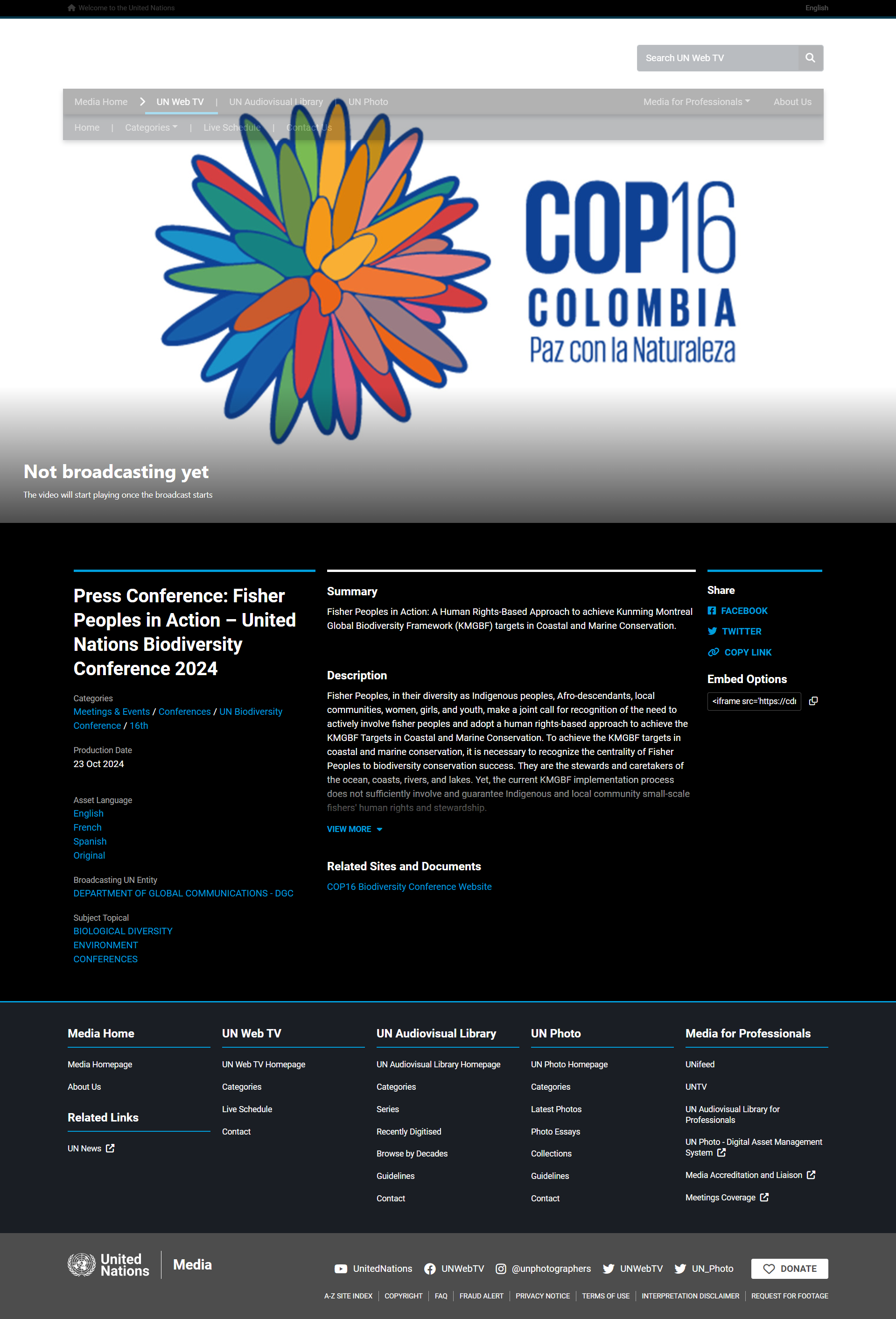
Water covers 70 percent of the Earth. Marine and freshwater environments sustain an abundance of life in its spectacular diversity. Through our history, small-scale fishing communities have interacted and depended on these living resources. A threat to aquatic environments is a danger to artisanal fishers.
Their protection and stewardship are essential to the communities and cultures they sustain. This relationship is a framework to manage conflicts and improve the quality of life and livelihood of small-scale fishers. It was recognized in the UN Convention on Biological Diversity.
Governments increasingly designate marine protected areas (MPAs) for conservation and management. This legal instrument does help but its implementation has raised serious concerns. Target-driven expansion of MPAs is fixated on quantitative goals. This has hit the rights, livelihoods and sustainable use practices of small-scale fishing communities. MPAs—created often in a non-consultative and non-participatory manner—have focused on regulating/restricting their fisheries, failing to recognize their sustainable livelihoods, culture and survival.
It is imperative that protection efforts are grounded in principles of sustainable use. That their processes are inclusive and recognize</b< traditional local systems of knowledge and governance, building upon them. Artisanal fishers must be the frontline of marine biodiversity conservation. There is an urgent need for systematic improvements on all such matters.
A range of ICSF’s initiatives highlight the social and political dimensions of conservation. The importance of livelihoods of poor and vulnerable communities, of their participation and consultation. The co-management of resources by fishing communities, based on a human rights approach to conservation.

Fisher Peoples in Action: A Human Rights-Based Approach to achieve Kunming Montreal Global Biodiversity Framework (KMGBF) targets in Coastal and Marine Conservation. Description: Fisher Peoples, in their diversity as Indigenous peoples, Afro-descendants, local communities, women, girls, and youth, make a joint call for recognition of the need to actively involve fisher peoples and adopt a human rights-based approach to achieve the KMGBF Targets in Coastal and Marine Conservation. To achieve the KMGBF targets in coastal and marine conservation, it is necessary to recognize the centrality of Fisher Peoples to biodiversity conservation success. They are the stewards and caretakers of the ocean, coasts, rivers, and lakes. Yet, the current KMGBF implementation process does not sufficiently involve and guarantee Indigenous and local community small-scale fishers’ human rights and stewardship. For more details, please visit: https://webtv.un.org/en/asset/k15/k15icg47f5

Although the principles of an ecosystem approach to fisheries (EAF) are not new, there is very little practical experience in their implementation. Translating high-level policy goals on EAF into operational...
This Code sets out principles and international standards of behaviour for responsible practices with a view to ensuring the effective conservation, management and development of living aquatic resources, with due...

Biodiversity mainstreaming, the consideration of biodiversity across fisheries and the range of actions taken by both fisheries and conservation governance streams is the subject of this paper. Evidence is presented...
Accordingly, several important management and science challenges have been identified. The paper considers how the knowledge gained from research on these challenges can be applied to a risk-based management framework...
This article explores the concept of “other effective area-based conservation measures” (OECMs) in the context of the UN Convention on Biological Diversity (CBD) Aichi Biodiversity Target 11 on marine protected...
Various countries have started to use marine spatial planning (MSP) to achieve sustainable use, including the goal of developing a “Blue Economy”, and biodiversity conservation in ocean and coastal areas...